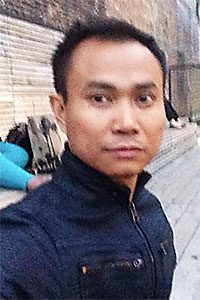
Both are the first female national leaders similarly alleged to have committed fiscal crimes of responsibility. They, however, faced the music of a different tune.
The two women -- impeached Brazilian president Dilma Rousseff and ousted Thai premier Yingluck Shinawatra -- were both accused of misusing public funds and causing huge public debts. The former was impeached by the Senate. The latter was ousted by a coup and is still facing repercussions for her actions.
Ms Rousseff was accused of breaking budget laws by window-dressing a state financial account to shore up the economy and hide a deficit. Her government used state-run banks and funds for upfront payments that amounted to public loans. Late last month, she made a long kiss goodnight to her office. And her legacy seems to end there.
Ms Yingluck is facing a criminal trial over alleged dereliction of duty for failing to stop her government's loss-ridden rice-pledging scheme. Similar to Ms Rousseff's administration, her government funded the scheme largely by borrowing about 260 billion baht from a state-run bank.

Surasak Glahan is deputy oped pages editor, Bangkok Post.
.
The fate of Ms Yingluck, a repercussion of her misguided policy and mismanagement, is different and questionable. It tells a tale of the 2006 and 2014 coup-makers' efforts to root out corruption and keep allegedly-corrupt politicians accountable by using strong anti-corruption measures. Among them is the use of Section 157 of the Criminal Code, the so-called malfeasance law.
The section has been used more widely as a tool to implicate politicians suspected of graft, since the Thaksin Shinawatra government was toppled in 2006. That section is in fact too broad and too vague, and is in need of amendments to include specifics on cases of wrongdoing and associated punishments.
In their efforts to eliminate corruption and dubious populist policies, Thailand's anti-corruption bodies had levelled up the crackdown into a more grey area by putting politicians and bureaucrats on criminal trial for their administrative wrongdoings and policy missteps.
But bringing a criminal case against someone -- including politicians -- requires solid proof beyond reasonable doubt, of wrongdoings for personal gain.
The rice-pledging scheme was plagued with corruption, of course. The Anti-Money Laundering Office has already implicated companies and individuals who benefited from fake government-to-government deals and demanded compensation. To be fair, the same kind of proof is needed if hefty compensation and the prospect of imprisonment is to be imposed on Ms Yingluck.
The National Council for Peace and Order, with a new order issued on Tuesday, is looking to investigate other subsidy policies of the same ilk implemented by previous governments dating back to 2005. It wants to find out about losses in stockpiles of deteriorating tapioca and maize and hold those responsible for implementing the policies to account.
The need to keep politicians and policy-makers accountable for their acts is a good thing. But it needs to be fair and reasonable, otherwise it could set a bad precedent for the country's future law enforcement and can have far greater impacts weakening the efficiency of future governments and state agencies. Politicians and bureaucrats will avoid taking actions and initiating bold policies.
Justice Minister Paiboon Koomchaya recently revealed that a new anti-corruption bill will extend punishment to cover parents and children of state officials found guilty of dishonest acts. In light of the bill, people start talking about having nominees act on their behalf to avoid harsher punishment, he said. The real problem we have is a lack of transparency and efficiency in public expenditure by both governments and state offices.
If the Yingluck cases set a precedent, future governments will risk being punished for implementing policies.
Thailand is a sick man and has been suffering consequences of graft for decades. We need efficient measures to tackle corruption. But we don't need extreme anti-graft pills which are illogical and unfair.
